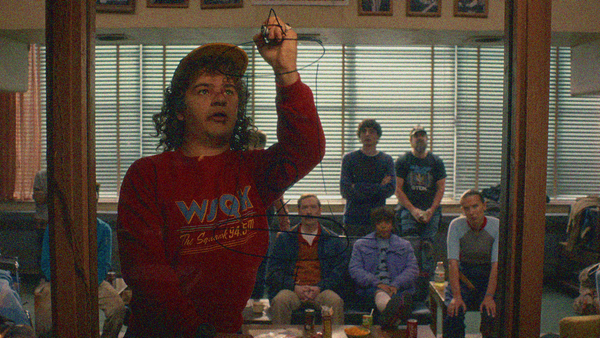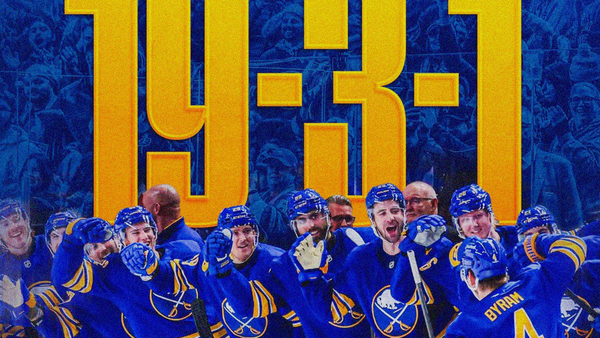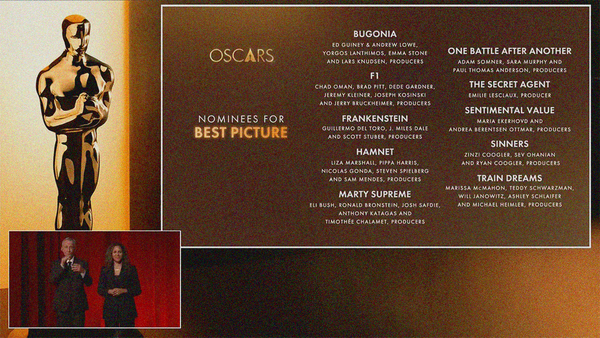Week Ending 5/2/25
Isola Bella

Now that I’m halfway through season three of “The White Lotus”, I think I know what my issue is with everything since season one: self-awareness.
The beauty of that initial vacation is the rich characters are completely oblivious to their abuse. This is not the case in season two and appears to not be the case in season three either. One factor is that the “poor” people get one up on the “rich” people and the latter must therefore acknowledge their mistakes with either guilt or regret. Another factor is that Mike White seems to have lost the satire and now simply writes for entertainment value alone.
I also think it was a mistake to carry Tanya and Greg through all three chapters. Her entire purpose in the first season is to provide Belinda’s narrative its emotional weight. So, why is she now the backbone of everything (via presence and absence)? It truly seems like a case of a writer seeing the buzz about a fan favorite and letting that guaranteed mainstream appeal dictate his future decisions.
As I said last week, the commentary and themes of season one weren’t perfectly executed, but they were present and effective. The way things have gone since, however, makes me wonder if that success was actually an unintentional happy accident. The show is still fun, but it’s all just empty calories now.
What I Watched:
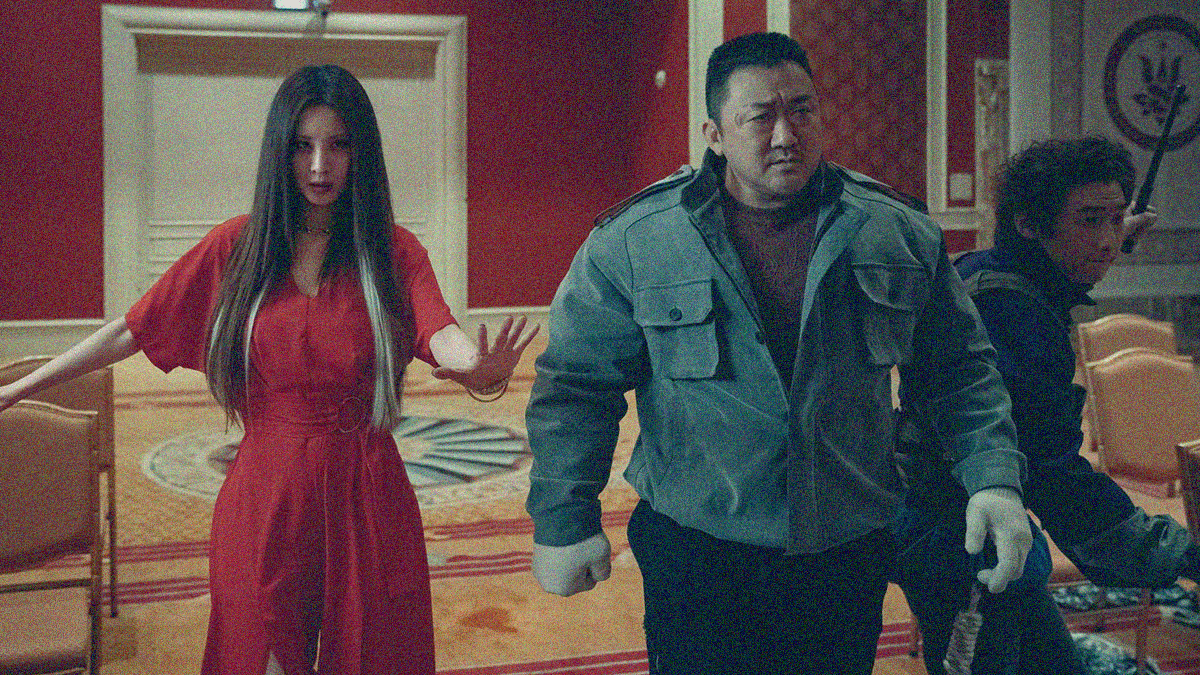
HOLY NIGHT: DEMON HUNTERS
[Georokhan: Demun Heonteoseu]
(limited release)
What if Don Lee/Ma Dong-seok's "Beast Cop" was an orphan imbued with supernatural super strength powers who grew up to use them to fight for the innocent souls of Earth in a war against demons? This is the question I imagine Lee asked himself before hatching the story that writer/director Lim Dae-hee fashioned into Holy Night: Demon Hunters. Teamed with an equally powerful lieutenant (Seohyun's Sharon) who holds similar abilities (expelling demons from their human captives' bodies) as the man he once called his "brother" until he turned to the dark side and a trusted sidekick documenting their dangerous work (David Lee's Kim-kun), Ba Woo's (Lee) trio is single-handedly holding Hell at bay.
Sounds fun. They think so too. That's why the whole enterprise feels like a proof of concept for another franchise to run parallel with Lee's more grounded Roundup series. It starts with the team showing us what they can do in the field to take down Beelzebub while also providing a step-by-step education on the terminology they use to do so. We learn most of their business is funneled through a friend on the force who knows regular cops stand zero chance against this kind of evil and that Ba Woo has a strained history with the priest who raised him—so strained that he's willing to turn away a potential client in desperate need (Kyung Soo-Jin's Jung-Won) solely because she used his name as a reference.
But it's through the possession of her sister Eun-Seo (Jung Ji-So) that Ba Woo must put aside his personal feelings to live up to the promises he made after a tragedy he still partially blames himself for happening. Yes, it's his job, but this particular case also seems uniquely connected to his past in ways that allow Lim's script to supply exposition that also foreshadows the bigger war we can presume is coming on the horizon via sequels (mainly a search for Lucifer that's teased further during a mid-credit stinger). This is the moment Ba has been waiting for—a reminder that he can still try and make things right. It's also the tipping point for Sharon to confirm her allegiance to the side of "light" and Kim-kun to prove his mettle despite having no powers.
The structure is pretty by-the-numbers with an introduction to the characters, another for the case, a sprinkling of contextually relevant flashbacks, and the thirty-minute climactic exorcism that will either save Eun-Seo or destroy the fabric of reality as we know it. Full of superimposed text to help hold our hand through the demonic kingdom's hierarchy and the step-by-step phases of an exorcism, there's little room for spontaneity—especially since Lee is the star and must make good on his production company's name (Big Punch). That action is mostly tacked on via a throwaway line about sycophants always coming out of the woodwork to serve their master since these nameless (and mostly masked) foot soldiers are literally only on-screen to get knocked unconscious.
In many respects, Seohyun is the real lead as a result. While Kim-kun assists the work (and the comedy as a prop to Don Lee's goofy antics) and Ba acts as protector clearing the way of fiery "bishops" while reliably being at the right place and time to lift something heavy or punch through doors, it's Sharon who does the crucial labor. She's making the plans and coming face-to-face with their enemies. She's the one risking her very existence by using powers that threaten to consume her much like they did Ba's "brother." She's the bad ass the plot hinges upon while Ba provides the ancillary excitement most audience members sought when buying a ticket. Holy Night: Demon Hunters is a supernatural thriller first, expansive IP foundation pour second, and actioner third.
And, to those ends, it works. The story itself is hardly groundbreaking, but the leading trio have a fun rapport that I wouldn't mind watching again. There's enough to their backstories to make room for growth and the overall mythology (bearing an uncanny resemblance to Keanu Reeves' Constantine) possesses an infinite well of serialized possibilities. The special effects work is good, Jung Ji-So delivers a memorable "possessed" performance, and Lim Dae-hee nicely balances the dark horror with a lighter sense of comic entertainment. It's only real knock preventing its popcorn fare's advancement from "familiar" to "exciting" is that it inherently feels incomplete. It's one thing to spawn a franchise on the back of success, but it's another to plan one before you've proven anything.
- 6/10
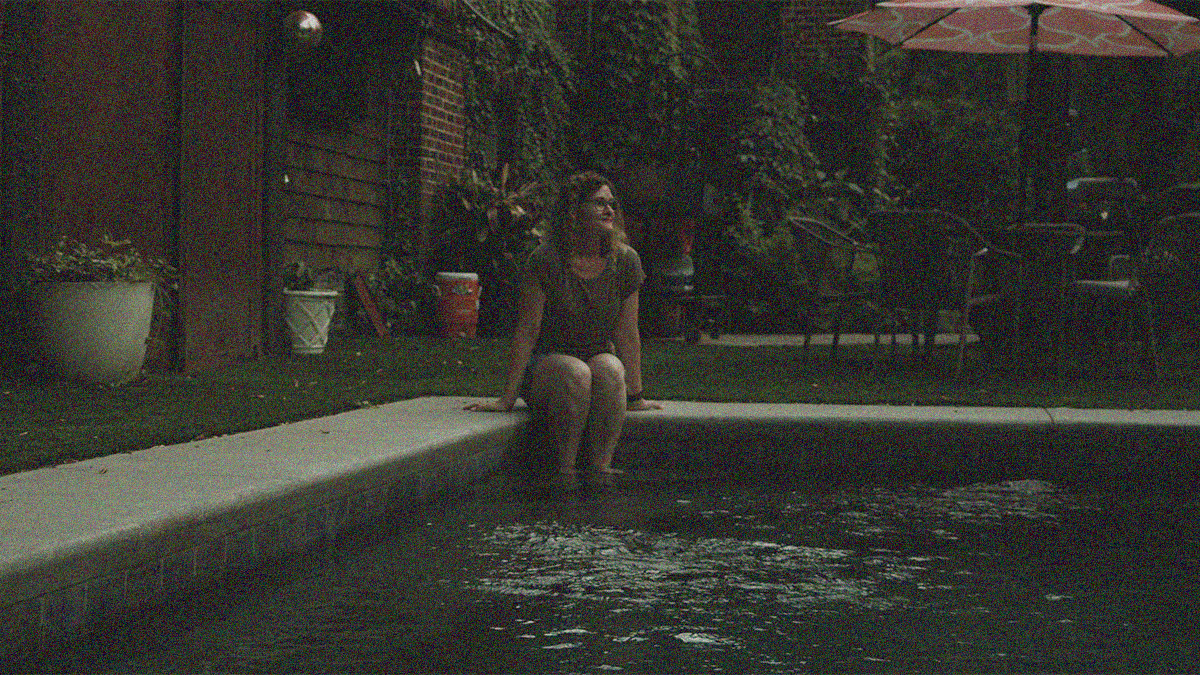
THE PASTOR’S DAUGHTER
“Hall is really making certain that we understand how fabricated this community of God-fearing souls is considering it’s been built upon an abusive charlatan's back.”
– Full thoughts at jaredmobarak.com.
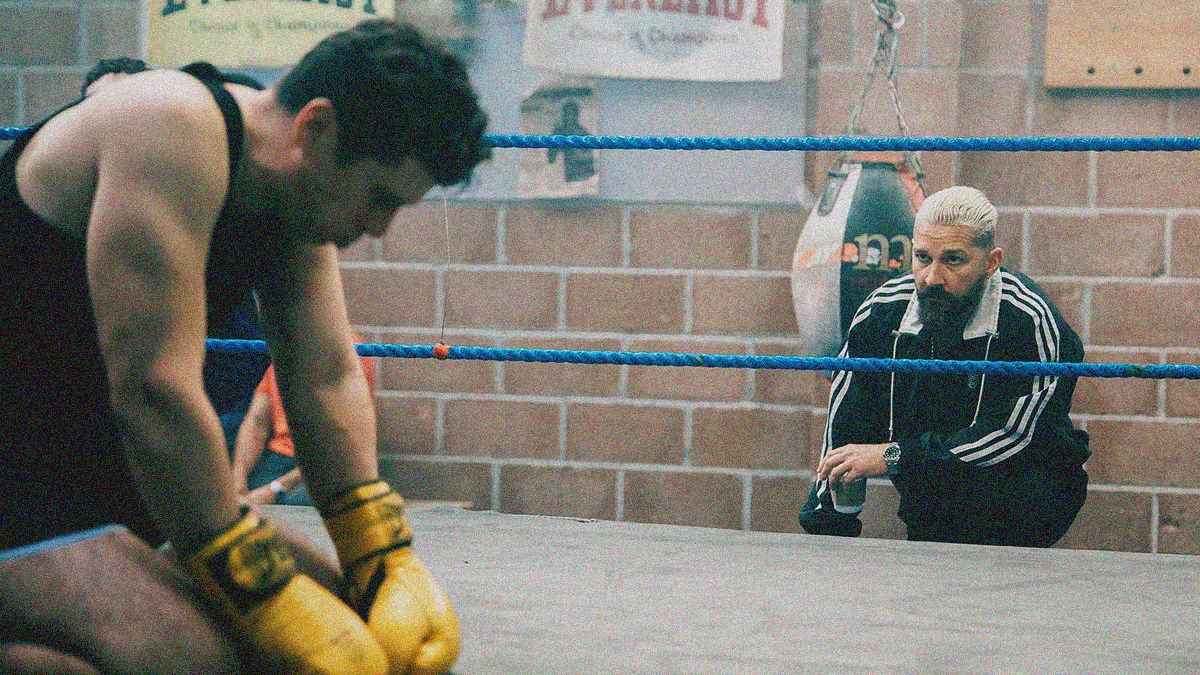
SALVABLE
(limited release)
Sal (Toby Kebbell) is trying. He's been trying for a while. To stay afloat financially by working as a senior caretaker. To stay connected to his roots by boxing as a journeyman for younger fighters to beat. To be a better father for his teenage daughter Molly (Kíla Lord Cassidy). It's all a little too late in the sense that it feels like he's just banging his head against the wall, but you must admire the fact that he keeps trying anyway. Because he owns his mistakes. He's not asking for forgiveness as much as a second chance to prove he's changed. Still changing. The thing he's never learned, however, is that patience trumps impulse.
At least, that's what I think he's never learned. For all its poignant beats and resonant drama, Björn Franklin (who also writes) & Johnny Marchetta's Salvable throws us into Sal's life so abruptly that we never really know what's going on beyond the surface emotions. That's not to say they aren't enough to invest in the character and his journey. Just that everything around him becomes an obstacle to overcome or a goal to achieve. Can he get out of his own way to be the man he needs to be so Molly stays in his life? Is his old running mate just out of prison (Shia LaBeouf's Vince) the answer or a curse? Are they all just excuses for him to continue pissing everything away?
It's a collision course destined for tragedy because the hard work Sal has put in to finally be exactly what Molly needs is happening right when the allure of a quick fix to his financial straits arrives. Father figure and coach Welly (James Cosmo) desperately seeks to keep him on course via tough love, but it's impossible to deny the promise of fun and reward Vince is selling. There's a bit of an unspoken quid pro quo too—as if Sal might have been on the road to prison too if not for Vince taking the heat instead, but I'm not sure. What happens at the end kind of refutes this notion by proving Vince truly loves Sal like a brother, but I won't deny the film plays it like he's using him up until that point.
I chalk it up to the superficiality of the script that I mentioned above. The plot and exposition are so thin that I ultimately needed to create my own backstory from the few exchanges we see on-screen. Because the only flashback we get is of the two as young teens readying for the Olympics. The crimes they committed and the reason for Vince's incarceration are never explained, so I filled in the blanks. And I did the same for Sal's relationship with Molly and his ex (Elaine Cassidy, Kíla Lord's real-life mother). We get more detail about this trio at least. Enough to understand the strain and buy the two heartfelt exchanges between father and daughter that show a thaw remains possible.
Those two scenes are very good. Molly witnessing Sal in a moment of vulnerability at his work that allows her to let her defenses down and Sal realizing at her school how the life that prevented him from being a good dad prepared him to understand how to tell Molly everything is going to be okay. Salvable is always at its best when Kebbell and the younger Cassidy are together. It's always its most authentic and meaningful. Because their relationship is the one that still has a future. Welly, Vince, and Elaine are figures of his past—good, bad, and ugly. Sal must forgive himself, put them all behind him, and realize he has time to be there for Molly. Not as a role model, but maybe a cautionary tale.
As such, the decision to take things where they go feels intentionally traumatic. And because the script's final day starts with only fifteen or so minutes left, I knew Sal's plans must inevitably go wrong. I braced myself for it. But there just isn't enough time. We receive a rushed, artificially tense montage of a climax where the love for Sal by everyone else pours out in each character's own way en route to a conclusion that still cannot penetrate its surface emotions for true stakes beyond the music cues. The bones are there for us to fill in the blanks again, and it is an enjoyable ride (Kebbell is great), but we never find that deeper connection. It's a story ripe for abstract lyricism told via linear literalism. Exciting potential undercut by familiar execution.
- 6/10
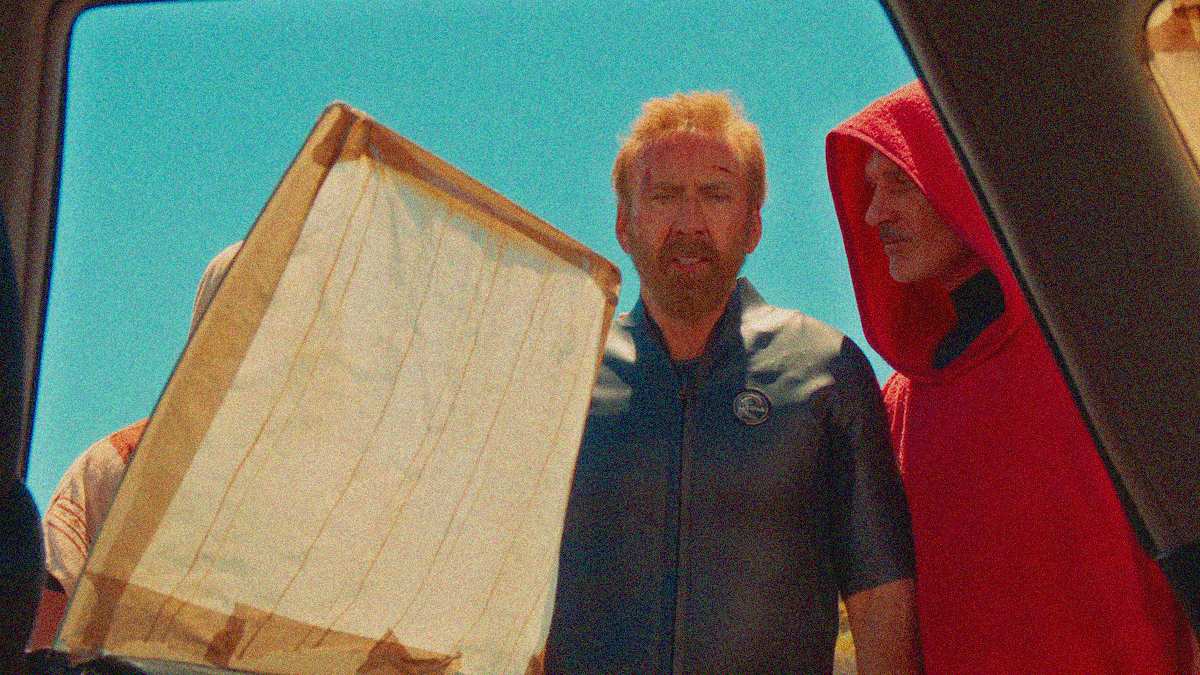
THE SURFER
(in theaters)
The first three-quarters of director Lorcan Finnegan and writer Thomas Martin's The Surfer plays like two ships crossing in the night. What we must ask ourselves while watching is whether they are reality and nightmare or fantasy and reality.
To take things literally is to presume the former. The unnamed "Surfer" (Nicolas Cage) is a successful American-raised Australian returning home to buy his childhood house and make good on a promise he made before his life imploded in divorce. This is the dream he's clung to for decades. The one he believes will make all his pain and sacrifice worth it. Just as he's about to cross the finish line, however, it all begins to fall apart. The locals tell him he can't surf on the beach. His real estate agent says another offer on the house has beaten his. And his broker doesn't think the bank will increase their loan.
So, "Surfer" is at his wit's end. He's desperate. Stubborn. He remains at the beach partly to be close when his broker calls back about the money and partly to assuage his ego and pride that he belongs. That it's his birthright. That these bullies have no authority over what he's allowed to do. But this confidence is hollow. A façade he's cultivated within a world dictated by suits and money. A world unlike the one he's thrust himself into, one full of physically aggressive toxic men led by Scally (Julian McMahon). Here "Surfer" is powerless. So much so that he inevitably lets them erase his identity under the blazing sun.
Take things figuratively, however, and everything we've been told might not be real. Maybe "Surfer" never was a success. Never had the money to buy that house. Never brought his son for a surf. Maybe that sun has driven him so far off the deep end that we've been watching from the vantage point of his delusion and Scally's rambunctious horde are actually stripping away the fantasy to remind him who he really is. The nightmare "Surfer's" life has devolved into is therefore made into the reality he's been trying to forget. He believes Scally is his enemy, but he's the one causing trouble by refusing to accept the truth.
Finnegan weaves these two possibilities together in ways that allow both to be legitimate interpretations depending on your level of optimism versus pessimism and where he and Martin eventually decide to take us. The collision builds the paranoia and danger to a fever pitch until nothing we see can be taken on faith. Because either way you slice it, the entirety of "Surfer's" journey is false. It's either one giant hallucination blurring the lines between him and the bum he's beginning to transform into (Nicholas Cassim) or one giant elaborate conspiracy orchestrated by Scally to break his mind and spirit.
That duality leads to the third act's question of why "Surfer" cares so much. Scally's is hardly a group of men you should aspire to join. These are unleashed animals who talk about deprogramming each other from society's political correctness in order to rebuild their apparently stunted masculinity. It's about "blowing off steam." It's about, as one character puts it, getting their violence out on the beach so they don't go home and "beat the Botox out of their wives." Is that who "Surfer" wants to be? Is this whole thing a metaphor for his emasculation? Is it actually condoning the localism and, by extension, the tribal nativism that has given rise to a rebirth of white supremacy across the world?
I won't lie and say I wasn't worried that Finnegan and Martin had taken a very wrong turn with their messaging once answers begin to come into focus. They sprinkle a lot of clues as to what's happening via their conflation of "surfer" and "suffer," so the end result is hardly surprising in its appearance. But it is surprising that it's so readily embraced. Well, maybe not that surprising considering Cage's character has gone through the wringer and is allowed a reprieve when embracing violence means saving yourself from being a victim of that violence. The surprise is that, when presented with the choice, he chooses the violence. These bullies hold his dream in their hands, after all.
That's the real message. Not that we willingly accept evil, but that evil oftentimes wields so much power and control that we don't realize we've accepted it. That's when this tiny beach becomes a microcosm of America (at least to this American) if not the world and its current, rapid decline into oligarchical authoritarianism. Because that's what I see in Scally and his men: Nazis. Gatekeepers willing to maim and kill any outsider who dares to set foot on "their" land. I use quotes, of course, since these are white men on a continent of indigenous people their ancestors stole it from. It doesn't matter that they also turn away other white men like "Surfer." That's part of the process of weeding out the "bad ones" to ensure full-fledged loyalty to the cause.
Because it's all a test. The Surfer is about torturing Nic Cage until all pretense and sanity evaporates to leave his purely primal instincts in charge. That's when we see who he really is and what he's truly capable of doing. That's when he can finally make his choice. Become an animal willing to sell its soul for the dreams that society indoctrinated him to achieve or realize no "reward" is worth relinquishing his humanity. Live large and at the top through cruelty or fight back so everyone can live as equals.
- 8/10
Cinematic F-Bombs:
This week saw Bad Company (2002), Days of Thunder (1990), Godzilla vs. Kong (2021), Godzilla: King of the Monsters (2019), Life Stinks (1991), Mission: Impossible - Ghost Protocol (2011), Mission: Impossible III (2006), Mrs. Henderson Presents (2005), School's Out! (1992), Smokey and the Bandit (1977), Sneakers (1992), Vantage Point (2008), The Wages of Fear (1953), and World Trade Center (2006) added to the archive (cinematicfbombs.com).
Randy Quaid dropping an f-bomb in Days of Thunder.
New Releases This Week:
(Review links where applicable)
Opening Buffalo-area theaters 5/2/25 -
Bonjour Tristesse at Dipson Amherst; Regal Quaker
HIT: The Third Case at Regal Elmwood, Galleria, Transit
Raid 2 at Regal Elmwood, Galleria, Transit
Retro at Regal Elmwood, Transit
Rosario at Dipson Capitol; Regal Elmwood, Galleria, Transit, Quaker
The Surfer at Regal Galleria, Transit, Quaker
Thoughts are above.
Thunderbolts* at Dipson Amherst, Flix, Capitol; AMC Maple Ridge, Market Arcade; Regal Elmwood, Galleria, Transit, Quaker
Streaming from 5/2/25 -
- Adult Best Friends – Max on 5/2
- Black Bag – Peacock on 5/2
- Inheritance – AMC+ on 5/2
- La Cocina – MUBI on 5/2
- Britain and the Blitz – Netflix on 5/5
- Untold: Shooting Guards – Netflix on 5/6
- Last Bullet (aka Lost Bullet 3) – Netflix on 5/7
- Heart Eyes – Netflix on 5/8
- Karol G: Tomorrow Was Beautiful – Netflix on 5/8
- Liza: A Truly Terrific Absolutely True Story – Kino on 5/8
Now on VOD/Digital HD -
Star Trek: Section 31 (4/28)
Audrey’s Children (4/29)
Being Maria (4/29)
Day of Reckoning (4/29)
Death of a Unicorn (4/29)
Drop (4/29)
Egghead & Twinkie (4/29)
The Friend (4/29)
“The psychological possibilities are endless. Regardless, the messaging is sweet. The depiction of human/canine love and affection is pure. And Watts is given a wonderful part to excel in.” – Full thoughts at HHYS.
Homestead (4/29)
The Penguin Lessons (4/29)
“It’s an inspiring story on all fronts. [But] considering what’s happening in our world—specifically America with its own broad and illegal renditions—it proves performatively quaint. That’s the mission, though. Say something, but not too much.” – Full thoughts at HHYS.
Sacramento (4/29)
Electra (5/2)
I’m Beginning to See the Light (5/2)
Off the Record (5/2)
Rust (5/2)
Salvable (5/2)
Thoughts are above.
Thanks for reading Hey, have you seen ...?! Subscribe for free to receive new posts and support my work.

